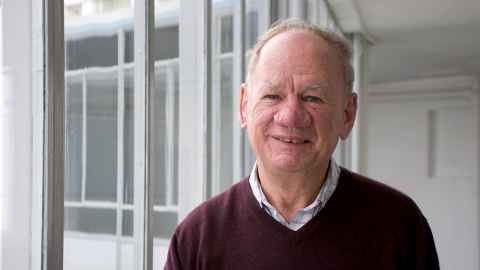Time to tackle welfare system with both hands
26 June 2018
Opinion: The Welfare Expert Advisory Group has an opportunity to turn around the harmful and ill-informed changes made to our welfare system in recent years, writes Mike O'Brien (Education and Social Work).

Too many New Zealand children and families are living in poverty. Too many others are falling through the social support networks as is clear when we walk around the streets of many of our cities and see those who are homeless. Too many of our most disadvantaged citizens are not receiving the support they should be (and are entitled to) because our welfare system has been developed over the last decade or more to prioritise paid work over everything else and to minimise assistance wherever possible.
The recent appointment by Social Development Minister Carmel Sepuloni of the Welfare Expert Advisory Group provides an opportunity to turn around the harmful and ill-informed changes that have been made in recent years and to make real and meaningful changes to our welfare system. The Group has been given a wide brief and contains a range of expertise which should ensure that the advice and recommendations are soundly based and well informed by both research and practice. It will certainly not make the fundamental errors of the Welfare Working Group in 2011.
So, what are some of the key outcomes we should expect? First, and most fundamentally, the narrow preoccupation with paid work as the first and only priority for welfare needs to change. Care - for children, for those with a disability - has to have priority alongside paid work. The world of work has changed dramatically over the last three decades. Our welfare system and services have to change to reflect this and, at the same time, to ensure that those who need financial support get the support they need.
Second, the horrors of current poverty levels have to be addressed if we are to be serious about having a welfare system which meets people’s needs. For many beneficiaries the movement between benefit support and paid work is more difficult and more hazardous than crossing the motorway at peak traffic time. Many give up and rely on charity (or on what they can beg) and in 21st century New Zealand that is not good enough.
Benefit levels, particularly for families with children, are quite simply too low. They have deteriorated significantly in comparison to other incomes over the last quarter of a century. They need to be increased significantly and there needs to be a strong mechanism to keep them aligned with community incomes and standards. Improving benefit rates substantially and then aligning the regular review processes with what happens for superannuation would be a good start.
Third, the culture within Work and Income needs to change significantly. There are too many stories from social workers and social service agencies about the negative and harmful responses many beneficiaries experience when they seek assistance. So, they give up and don’t apply for assistance which they should be receiving.
Fourth, there are important and quite specific changes which need to be made. One of the worst of these is the sanctions regime which has operated over recent years. This regime reduces benefits significantly, sometimes erroneously, and with very serious consequences for our most disadvantaged and deprived families and children. The evidence is clear that not only are they harmful, they don’t achieve their stated goals. They are simply a cruel punishment and part of what is a quite punitive environment for beneficiaries.
There is much more than this for the Group to engage with. Of the different advisory and reform groups the government has created, the work of this one is arguably the most vital because there is so much to change and because those affected are our most disadvantaged citizens. They have the opportunity and mandate to make a real and substantial difference. I look forward to seeing them take it with both hands.
Dr Mike O'Brien is an associate professor in the School of Counselling, Human Services and Social Work, at the University of Auckland's Faculty of Education and Social Work.
This article reflects the opinion of the author and not the views of the University of Auckland.
Reproduced with permission from Newsroom, Time to tackle welfare system with both hands published on Tuesday 26 June 2018.